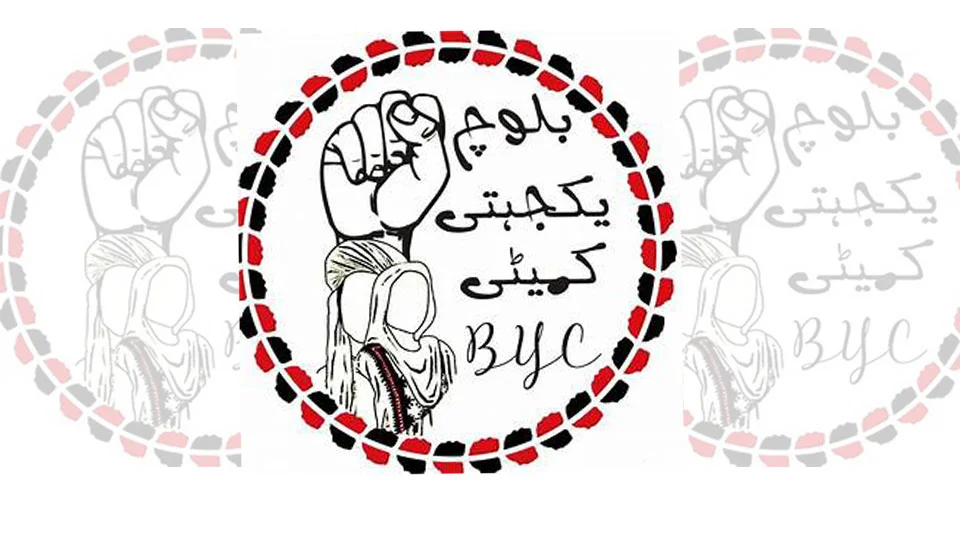Balochistan’s relationship with the Pakistani state has never been sound. Since the forceful annexation of Balochistan in March 1948, the Baloch people have remained in a constant struggle against the occupation of their homeland and the ongoing oppression by the Pakistani state.
Pakistan has repeatedly demonstrated that it has no interest in the well-being of the Baloch nation. It does not care about the sufferings or the inhumane conditions under which the Baloch live. For Pakistan, it is only the landmass of Balochistan that holds value, not its inhabitants.
Balochistan is a region rich with copper, gold, coal, oil, gas, marble, uranium, and countless other untapped mineral reserves. It also hosts the strategically vital deep-sea port of Gwadar, situated at the mouth of the Persian Gulf and Strait of Hormuz.
Paradoxically, the abundance of natural wealth has brought nothing but pain, agony, violence, poverty, starvation, and human rights violations for the Baloch people since 1948. The history of pain continues unabated for over seven decades, but so does the spirit of resistance — stronger today than ever before.
Historically, the Baloch struggle has witnessed four major military operations by the Pakistani Army. The fifth and current phase — the largest and most enduring — began in the early 2000s and continues to gain momentum. This phase has been marked by massive military offensives against leadership, activists, and supporters, including enforced disappearances, torture, extrajudicial killings, suppression of freedom of expression, and the silencing of critical journalism. Balochistan has been turned into an information black hole, and for decades, the world has heard little of its plight.
However, the advent of social media has changed the narrative. Today, the Baloch cause is reaching a broader audience of activists, academics, journalists, human rights defenders, members of parliaments, the European Parliament, the United Nations, and various international organizations.
Despite growing awareness, the situation on the ground remains dire. The Pakistani state continues to commit atrocities while controlling the flow of information, spreading false narratives, and barring independent media from reporting in Balochistan. Yet the perseverance of Baloch activists has made it impossible for these crimes to stay hidden.
A major turning point came in 2020, when members of a state-backed death squad attacked a house in Kech, killing Malik Naz and critically injuring her four-year-old daughter, Bramsh. This heinous crime ignited mass protests across Balochistan — a united outcry against the state’s violence and its criminal proxies.
Shortly afterwards, another brutal act shook the nation: the cold-blooded murder of Hayat Baloch, a student executed in front of his parents by the paramilitary Frontier Corps. These events reignited the spirit of resistance and led to the emergence of a civil rights movement: the Baloch Yakjehti Committee (BYC), led by Dr. Mahrang Baloch.
Since its formation, BYC has upheld peaceful principles despite relentless intimidation by the Pakistani state. Leaders like Dr. Mahrang Baloch and Sammi Deen Baloch faced harassment, travel bans, violent attacks, and character assassination by state-controlled media. Activists, including Beebow, Gulzadi, Saira, Seema, Fozia, Mahzaib, and Sadia, have been arrested multiple times under fabricated charges. Yet, the Baloch Yakjehti Committee continues to stand firm — a testament to the resilience of the Baloch spirit.
In March 2025, following the Jaffar Express Train hijack attack (claimed by the Baloch Liberation Army), the Pakistani Army launched a brutal crackdown. Victims of enforced disappearances were killed in staged encounters and falsely labeled as BLA members. In Quetta, several unidentified bodies were brought to the hospital and later buried separately at Kasi Cemetery without any proper investigation or accountability.
The discovery of these bodies sent shockwaves through Balochistan. Families of the disappeared rushed to hospitals and cemeteries seeking answers. Instead of assisting them, the Pakistani state responded with brute force. Protesters were violently dispersed, and several were arrested on the spot. Among those arrested were Beebarg Baloch (a BYC leader) and his brother. Dr. Mahrang Baloch and Beebow Baloch were detained during peaceful sit-ins. Sammi Deen Baloch was arrested in Karachi, although she was later released after being detained under the draconian 3MPO law.
Gulzadi Baloch was also arrested during this wave of repression. She was beaten, verbally abused, and humiliated by police personnel during her detention. Additionally, the Pakistani authorities arrested Sibghatullah Shah Ji, another prominent activist and advocate for Baloch rights. After arresting several activists, including Beebow Baloch, who remains under custody, the Pakistani security forces resorted to unlawful tactics by detaining the family members of activists. The fathers of Beebow Baloch and Dr. Sabiha Baloch were forcibly taken into custody in an attempt to intimidate and pressure the movement’s leadership. Despite these acts of collective punishment, the spirit of resistance among the Baloch people remains unbroken.
These arrests were a clear attempt to crush the political voice of the Baloch people. But instead of silencing the movement, these injustices drew international condemnation from organizations like Frontline Defenders, United Nations Special Rapporteurs, international media outlets, and members of the British, Irish, and European Parliaments.
Today, as Dr. Mahrang Baloch and her companions remain imprisoned — undertaking a hunger strike to protest their treatment — the movement outside grows stronger. Dr. Sabiha Baloch tirelessly advocates for the release of her colleagues, leading the movement as a beacon of hope. Likewise, Sammi Deen Baloch remains vocal in exposing the Pakistani state’s brutalities.
The Baloch people have never seen a day of peace in the last seven decades. But they have built something more powerful: a collective consciousness, courage, determination, hope, ideals, and unwavering resistance.
No act of brutality can extinguish the spirit of a people who now stand united under the fearless leadership of their young, energetic women, making history both locally and internationally through their bravery, commitment, and love for their nation.

